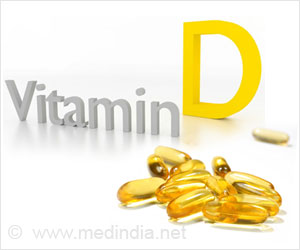- A research team from Touro University has identified widespread vitamin D deficiency which could be triggered by excessive use of sunscreens
- The study shows that nearly 1 billion people worldwide have vitamin D deficiency.
- Ongoing research to identify vitamin D deficiency is associated with multiple sclerosis, autoimmune disease and respiratory disease.
Prevalence of Vitamin D in India
Vitamin D deficiency is pandemic, although it is still not diagnosed effectively. The most important contributor to sufficient vitamin D levels is adequate exposure to the sun, and even in a tropical country like India, there is a high prevalence. The high prevalence of Vitamin D deficiency in India -- found to be between 70 and 100% -- can be attributed to the absence of vitamin D fortified foods. Existing socio-religious beliefs also prevent exposure to the sun. The low levels of vitamin D are considered a contributing factor for diseases like rickets, tuberculosis, osteoporosis, cardiovascular disease and cancer.Factors Contributing to Vitamin D Deficiency
Vitamin D insufficiency occurs when the level of vitamin D in the blood is between 21 and 30 ng/ml and vitamin D deficiency occurs when the levels of vitamin D are below 20ng/ml.- Race: 95% of African American adults have vitamin D deficiency which could be due to the difference in their skin pigmentation. The high amount of melanin in their skin could be affecting the synthesis of vitamin D.
- Fewer Hours Spent Outdoors: People are not spending sufficient amount of time outdoors and the shorter periods of time spent outdoors restrict the amount of vitamin D that may be synthesized.
- Use of Excessive Sunscreen: Sunscreen helps in lowering the risk for skin cancer but the body requires a certain period of sun exposure to synthesize vitamin D using the sun’s rays. This period of exposure to the sun is drastically reduced as people persistently step out into the sun wearing sunscreen.
- Certain Disease Conditions: Chronic diseases like type 2 diabetes or diseases associated with malabsorption like Crohn’s disease, kidney disease or even celiac disease affect the ability of the body to synthesize vitamin D.
Synthesis of Vitamin D
Vitamin D, which is actually considered a hormone, is produced when the body is exposed to sunlight. The receptors for vitamin D are present in nearly every cell in humans. Vitamin D is essential for- Modulation of cell growth
- Neuromuscular function
- Immune function
- Reduction of inflammation.
Symptoms of Vitamin D Deficiency
The symptoms associated with vitamin D deficiency include- muscle weakness
- increased risk of bone fractures.
Tips to Maintain Healthy Levels of Vitamin D
There are many ways to maintain a healthy level of vitamin D in the body. Some of the key ways are:- Spend Sufficient Time Under the Sun: There should be healthy dose of sunscreen free exposure to the sun, at least 5 to 30 minutes under the midday sun, twice a week. This could be in the form of walking to the grocery store or the pharmacy or even around the neighborhood for a post lunch walk. The extent of time spent outdoors is largely dependent on the skin color, since lighter skin produces vitamin D faster, people with light skin may need to spend relatively fewer time outdoors. According to Dr. Pfotenhauer, there is no need for extensive periods under the sun like a sunbathing routine. A simple walk would suffice.
- Avoid Using Sunscreen For Short Period of Sun Exposure: A sunscreen with an SPF of greater than 15 lowers the production of vitamin D by nearly 99%.
- Supplement the Diet With Vitamin D Rich Foods: A diet rich in vitamin D would help replenish levels of vitamin D in the body. Examples of food sources are breakfast cereals, Portobello mushrooms that are fortified with vitamin D, and milk.
- Vitamin D Supplements: These supplements should be consumed after consultations with a physician but they are effective and can increase vitamin D levels considerably.
Vitamin D Deficiency and Risk of Diseases
Research studies are being carried out to determine if low levels of vitamin D could contribute to the development of diseases like respiratory disease, autoimmune disease, cardiometabolic disease, fracture risk and cancer. Dr. Pfotenhauer said that research studies are trying to ascertain a one-to-one association between vitamin D levels and certain diseases. The researcher further stated that the ubiquitous nature of the vitamin in the body could indicate the relevance of the vitamin in the general health of an individual. This necessitates maintaining optimum levels of vitamin D in the body for better health.References:
- Vitamin D Deficiency in India: Prevalence, Causalities and Interventions - (https://www.ncbi.nlm.nih.gov/pmc/articles/PMC3942730/)
















